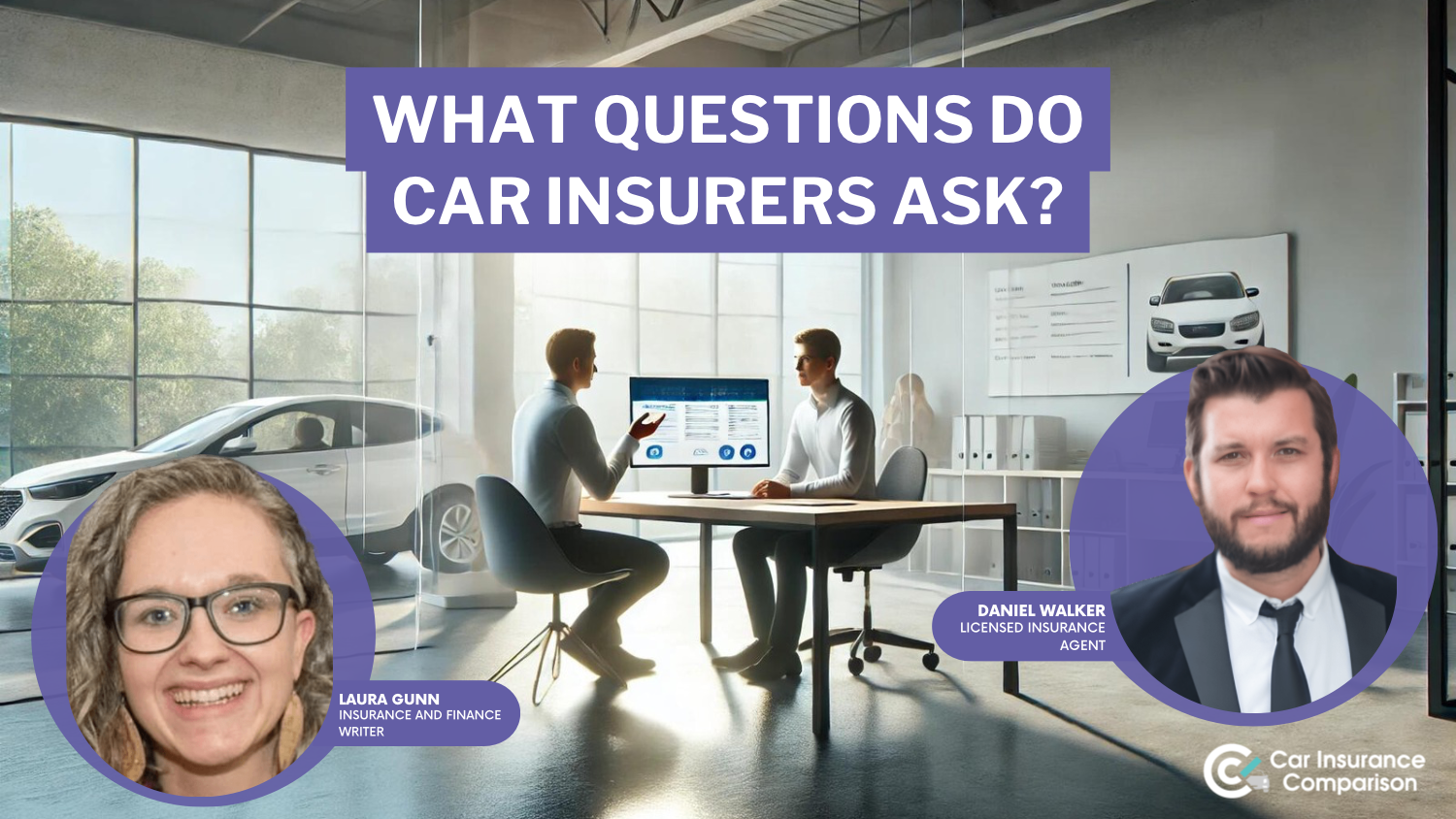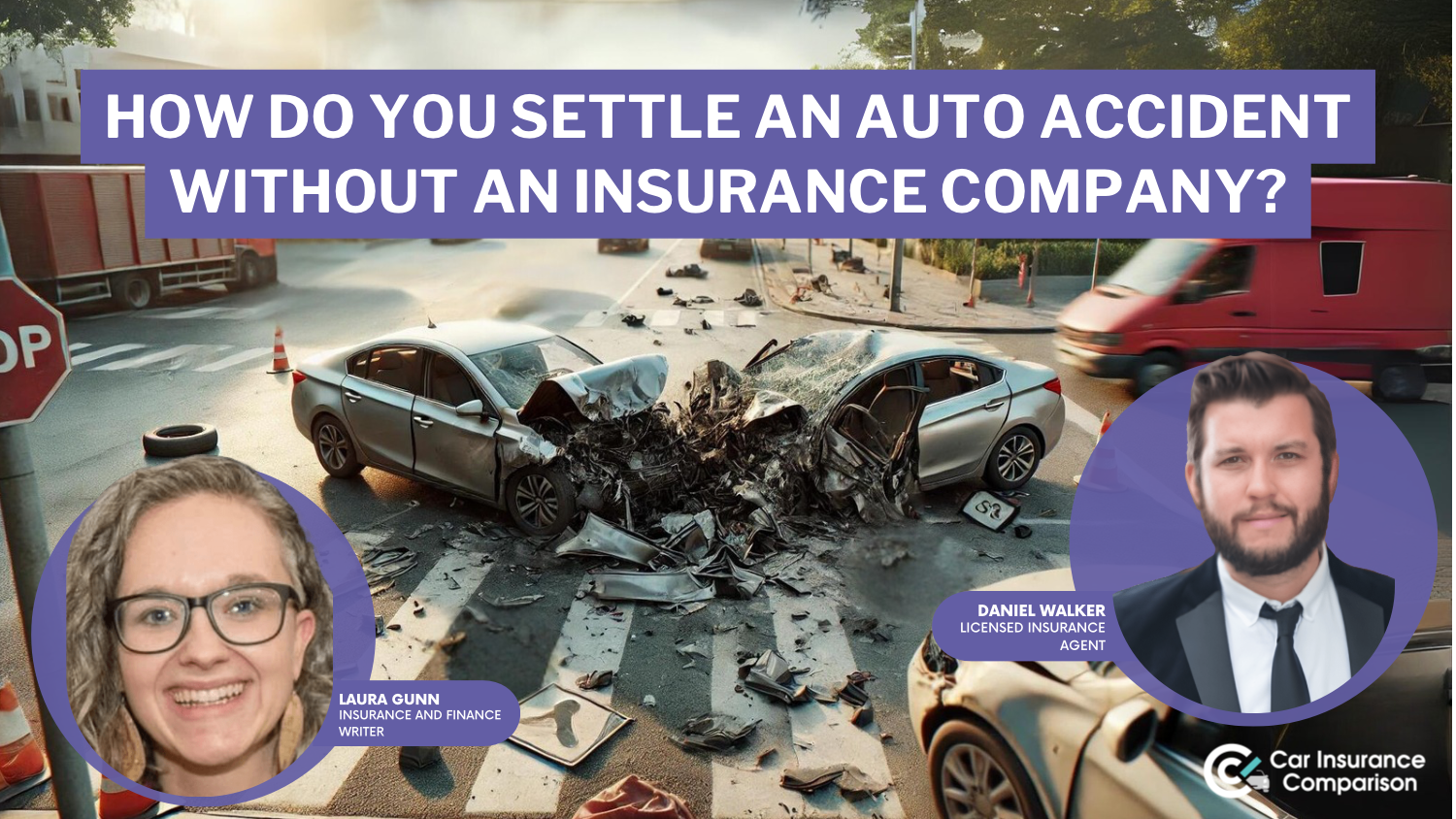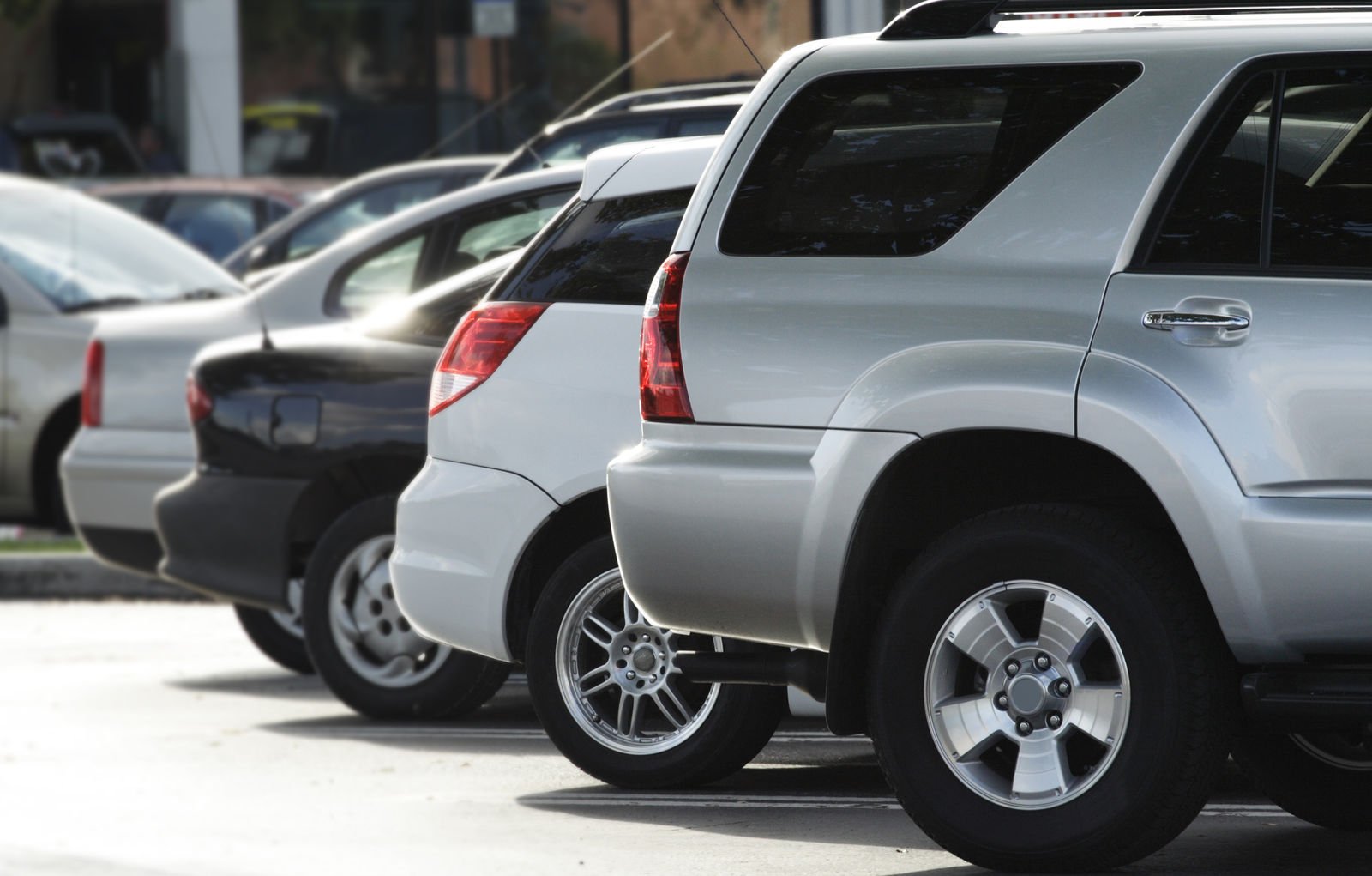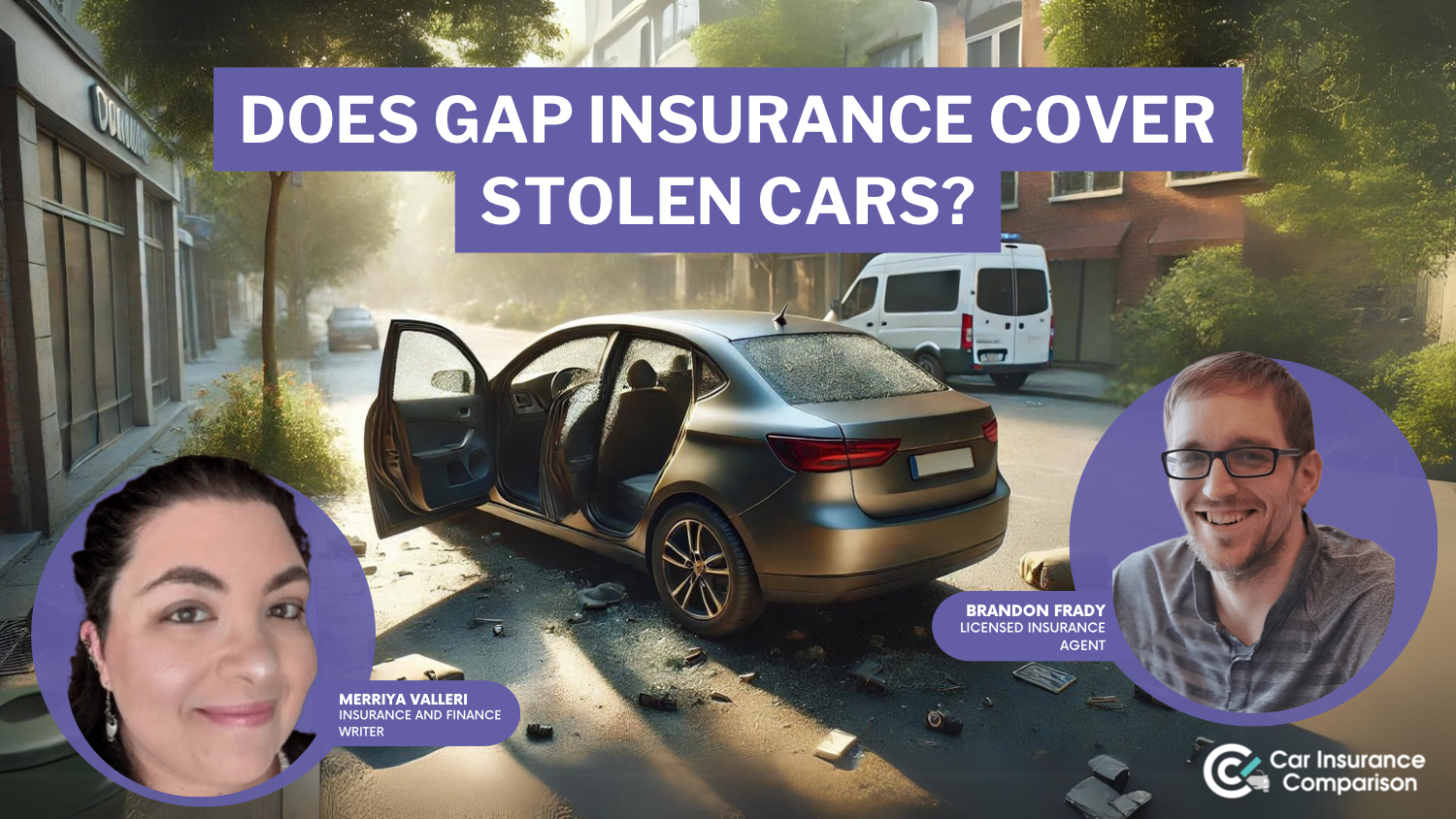Understanding Car Accidents
There are more than six million passenger car accidents in the U.S. every year. Rear-end collisions are the most common. If you're ever in an accident, file a claim with your insurance company as soon as possible. Understanding car accidents and what causes them can help you avoid expensive insurance claims.
Read more Secured with SHA-256 Encryption





Table of Contents
Table of Contents


Published Insurance Expert
Melanie Musson is the fourth generation in her family to work in the insurance industry. She grew up with insurance talk as part of her everyday conversation and has studied to gain an in-depth knowledge of state-specific insurance laws and dynamics as well as a broad understanding of how insurance fits into every person’s life, from budgets to coverage levels. Through her years working in th...
Melanie Musson


Licensed Insurance Agent
Brad Larson has been in the insurance industry for over 16 years. He specializes in helping clients navigate the claims process, with a particular emphasis on coverage analysis. He received his bachelor’s degree from the University of Utah in Political Science. He also holds an Associate in Claims (AIC) and Associate in General Insurance (AINS) designations, as well as a Utah Property and Casual...
Brad Larson
Updated October 2024
Car accidents can be frightening. If you drive, you put yourself at risk every time you take your vehicle out on the road. In the U.S., there are more than six million car accidents every year. Because of this, understanding car accidents is essential. It’s important to know what causes most car accidents, how to prevent them, and what to do when you get in a car accident.
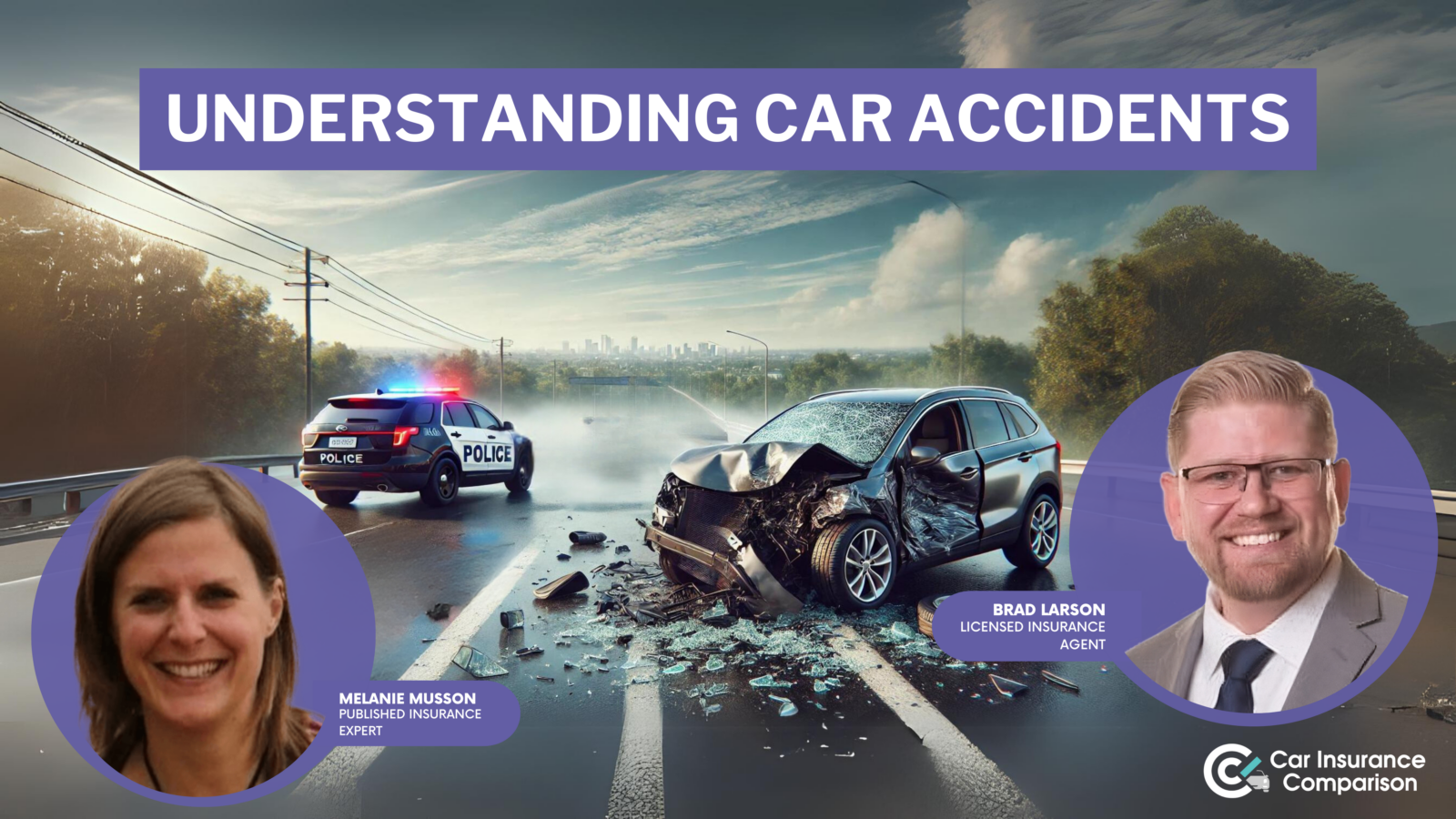
The major causes of car accidents are distracted and impaired driving, reckless driving habits, weather-related incidents, and mechanical failure. Still, there are certain things you can do as a responsible driver — like defensive driving — to avoid accidents as much as possible.
If you are ever in a car accident, you must report the accident to your insurance company. If someone else caused the accident, that individual may be financially responsible for repairs and other medical bills. Your insurance company will help you determine what you need to do.
Proper car insurance is important, regardless of where you live. If you drive, you must meet your state’s requirements for car insurance coverage. With the right coverage, you will have the protection you need if you’re ever involved in a car accident. Fortunately, you can shop online and compare the cheapest car insurance companies in your area to get the proper coverage at an affordable price.
Understanding What Causes Most Car Accidents
While there are several causes of car accidents, the most common reasons often include:
- Distracted driving
- Impaired driving
- Reckless driving
- Weather-related causes
- Mechanical failure
The most common types of car accidents listed above can significantly threaten your safety on the road.
Distracted Driving
If you’ve ever driven near someone else who was driving and using their cell phone simultaneously, you’ve witnessed distracted driving. Distracted driving is anything we do while driving that can take our attention away from the task. Some of the most common forms of distracted driving include texting or using a cell phone, eating, applying makeup, messing with the radio, or assisting other passengers.
Some states have strict laws concerning distracted driving that have helped make roads safer. Still, we have a long way to go before distracted driving is not a major cause of car accidents, injuries, and fatalities.
Impaired Driving
We all know we should not drink and drive, but some people do it anyway. Roughly 30% of all traffic crash fatalities involve drunk driving. If you consider other forms of impaired driving, like drugs, that number increases. People who get behind the wheel after drinking alcohol pose a risk to drivers, passengers, and pedestrians.
Each U.S. state has severe penalties if someone is caught driving while under the influence of drugs or alcohol. In most cases, your license is suspended, and you cannot drive for a certain time. You may also have to pay a fine, attend a course, do community service, or even spend time in jail as a result. Getting car insurance after a DUI is also more difficult.
Reckless Driving
Reckless driving is any form of dangerous driving for the driver or anyone else on the road or in the area. The most common form of reckless driving is speeding, which can coincide with other forms of reckless driving, like running traffic lights and stop signs.
Reckless driving is the cause of many car accidents, and people caught driving recklessly could face serious penalties.
Weather-Related Conditions
If you’ve ever driven in adverse weather conditions, you know how chaotic it can be. Unfortunately, weather-related conditions are responsible for more than 20% of car accidents in the U.S.
For some people, adverse weather may be snow and ice. For others, the negative weather conditions may come in torrential rain and flooding. Regardless of the scenario, drivers may avoid weather-related conditions by paying attention to their surroundings and staying updated with any potential storm or issue. To prevent these kinds of accidents, learn about how to drive safely in bad weather.
Read more: Does car insurance cover black ice?
Mechanical Failure
Have you ever driven on the interstate and wondered what would happen if, that very instant, your car stopped? Would there be an accident? Would cars behind you be able to stop in time? Unfortunately, mechanical failures are often unavoidable and can cause a mess, depending on where you’re driving.
Because mechanical failures can cause serious accidents and even fatalities, it’s important to take your vehicle to the shop whenever the check engine light is on. Regular tune-ups and maintenance are also key to ensuring your car is fit to drive.
If your car is up-to-date on maintenance and has certain safety features, you may find your coverage rates are cheaper when you compare multiple car insurance quotes online. Compare quotes at least once yearly to ensure you get the best coverage deal.
Free Insurance Comparison
Compare Quotes From Top Companies and Save
Secured with SHA-256 Encryption
Understanding Different Types of Car Accidents
There are only a few car accidents: rear-end collisions, t-bone accidents, head-on collisions, rollover accidents, and single-vehicle accidents. Each of these has its own specific causes, and the results of each one can be drastically different.
Rear-End Collisions
Rear-end collisions are extremely common. In a rear-end collision, the front bumper of one car hits the rear end of another vehicle. In most cases, rear-end collisions are caused by negligence — like distracted driving or driving under the influence — though adverse weather may also be to blame in certain cases.
With nearly 2 million rear-end collisions in the U.S. each year, it’s a good idea to watch out for this type of car accident. When you can, stay several feet away from the car in front of you, and always give yourself time to make proper turns or lane shifts, especially during inclement weather.
Read More: What do I do if my car got rear ended?
T-Bone Collisions
A t-bone collision occurs when the front of one vehicle strikes the side of another, creating a “T” shape at the point of impact. T-bone collisions account for more than 800,000 traffic deaths annually and have increased by 20 percent over the past few decades.
Head-On Collision
Head-on car crashes or front car crashes account for just two percent of car accidents in the United States. Unfortunately, this type of collision is responsible for more than 10% of crash-related deaths in the U.S. Head-on collisions occur when the front end of one vehicle crashes into the front end of another.
The results can often be fatal if you’re in a head-on collision at higher speeds. To avoid head-on collisions, follow traffic signs and regulations, and practice defensive driving. Head-on collisions are often caused by impairment such as drugs or alcohol. You should never get behind the wheel if you’re under the influence. If you drive at night, pay attention to your surroundings, as head-on collisions increase in the evening.
Rollover Accidents
Rollover accidents don’t often occur, but they can be extremely dangerous when they do. Rollover accidents kill more than 10,000 people in the U.S. annually, according to the National Highway Traffic Safety Administration (NHTSA).
Single-Vehicle Accidents
A single-vehicle accident is any accident that involves one vehicle. For example, if you run your car into a wall or object or are involved in any other crash that only involves your vehicle, that’s considered a single-vehicle accident. While these accidents can still be devastating, they are often less serious than other collision accidents.
How to Prevent Car Accidents
To learn how to avoid car accidents, most of the information is likely common sense. If you’ve been driving for any length of time, you already know how to drive safely and defensively to prevent collisions and other issues as much as possible.
Driving Safety Tips
The best thing you can do to avoid car accidents is to pay attention while driving. Avoid falling into distracted driving patterns. For example, remove your phone from reach so you’re not tempted to grab it to send a quick text or change the music in your car. Apply your makeup or check yourself in the mirror before you leave the house. And don’t eat while you’re driving.
Basic Vehicular Maintenance
Taking your vehicle in for regular maintenance and inspections is crucial to avoid and prevent car accidents. As professional mechanics inspect your vehicle, they can tell you if anything needs attention before it turns into a serious issue that could cause issues on the road.
Take Advantage of Safety Features
If your vehicle has safety features that help prevent accidents, take advantage of them. For example, many newer cars have technology that alerts the driver if you’re changing lanes while a car is passing or getting too close to another vehicle. Use your backup camera to avoid a single-car accident when parking. Some of these features may also allow you to qualify for safety features car insurance discounts.
Practice Defensive Driving
Defensive driving may take extra work, but it could protect you and others, and it’s often helpful when determining how to avoid collisions. To practice defensive driving, you must remain alert to other cars on the road. Pay attention to anyone driving too quickly or driving distractedly. Do your best to anticipate other drivers’ next moves to avoid a collision.
Read more: Backup Camera Car Insurance Discounts
What to Do When You Get in a Car Accident
If you are ever in a car accident, there are a few things you’ll need to do. First, remember the seven steps to follow after an accident:
- Stop.
- Get to a safe place.
- Call the police.
- Exchange information (when applicable).
- Talk to the police.
- Document the scene.
- Call your insurance company.
Once you know you’re safe, it’s time to call the authorities and exchange information with the other driver if you were in a collision with one or more vehicles. If you’re curious about what insurance information to give in an accident, you only need to provide your personal policy information.
If you’re at fault in the accident, your insurance company will likely need specific information concerning the incident. As you provide information to your agent or an insurance company representative, you will also file a claim with your car insurance policy. Learn more about which insurance company to call after an accident.
Read more:
- How do you settle an auto accident without an insurance company?
- If I am in a car accident, do I call their insurance or mine?
How to File a Car Accident Insurance Claim
Each company handles claims differently, but filing a car insurance claim shouldn’t be difficult. You can call your company and speak with a representative, though some companies allow you to file claims online or via a mobile app. Someone will tell you the information you need to provide as you file your claim, and you may need to wait several days or weeks between filing the claim and hearing what happens next.
Sometimes, your insurance company may determine that your vehicle is totaled because of an accident. If this is the case, remember to compare the amount your insurance company offers you to your car’s actual cash value (ACV) based on online research. You can negotiate a settlement with your insurance company if you’re well-informed about your vehicle.
Free Insurance Comparison
Compare Quotes From Top Companies and Save
Secured with SHA-256 Encryption
Case Studies: Understanding Car Accidents
Case Study 1: Liability Insurance Coverage
Sarah, a responsible driver, accidentally rear-ended another vehicle at a red light. Fortunately, Sarah had comprehensive liability insurance coverage, which not only covered the damages to the other driver’s car but also helped pay for the medical expenses of the injured driver.
This highlights how having the right insurance coverage can protect drivers financially in case of accidents.
Case Study 2: Uninsured/Underinsured Motorist Coverage
Mike, a cautious driver, was involved in a hit-and-run accident where the other driver fled the scene and could not be identified. Luckily, Mike had uninsured motorist coverage, which ensured that his own insurance company covered the damages to his vehicle and his medical expenses.
This emphasizes the importance of protecting oneself from drivers who don’t have adequate insurance coverage.
Case Study 3: Comprehensive Coverage for Vehicle Damage
Lisa parked her car on the street overnight, and the next morning, she discovered that her vehicle had been vandalized, with broken windows and dents.
Fortunately, Lisa had comprehensive coverage, which covered the costs of repairing the damages. This underscores how comprehensive coverage can provide financial protection against non-collision incidents.
Case Study 4: Personal Injury Protection (PIP) Coverage
John was involved in a serious car accident that resulted in multiple injuries requiring extensive medical treatment.
Luckily, John had PIP coverage, which helped cover his medical expenses, rehabilitation costs, and lost wages. This highlights how PIP coverage can provide crucial support for individuals injured in car accidents.
Case Study 5: Total Loss and Gap Insurance
Jessica purchased a brand-new car and unfortunately got into a major accident soon after. The cost of repairing the car exceeded its actual cash value, resulting in a total loss.
However, Jessica had gap insurance, which covered the difference between the car’s value and the remaining loan amount. This demonstrates how gap insurance can prevent financial burdens when a car is declared a total loss.
Understanding Car Accidents: The Bottom Line
If you’re in a car accident, don’t stress. The most important thing to do is make sure you are safe and that you’ve alerted the authorities. Eventually, you will exchange information with anyone else involved and notify your insurance company of the accident.
Car accidents are often caused by distracted and impaired driving, reckless driving habits, weather-related causes, and mechanical failure. Fortunately, there are certain things you can do as a responsible driver to avoid accidents as much as possible.
If you are in a car accident, report the accident to your insurance company. If someone else caused the accident, that individual may be financially responsible for repairs and other medical bills. Your insurance company will help you determine exactly what you need to do.
As you search for proper car insurance, remember to compare quotes from multiple companies before determining the best for you. It’s important to understand the types of car insurance you need to be better prepared when you’re on the road.
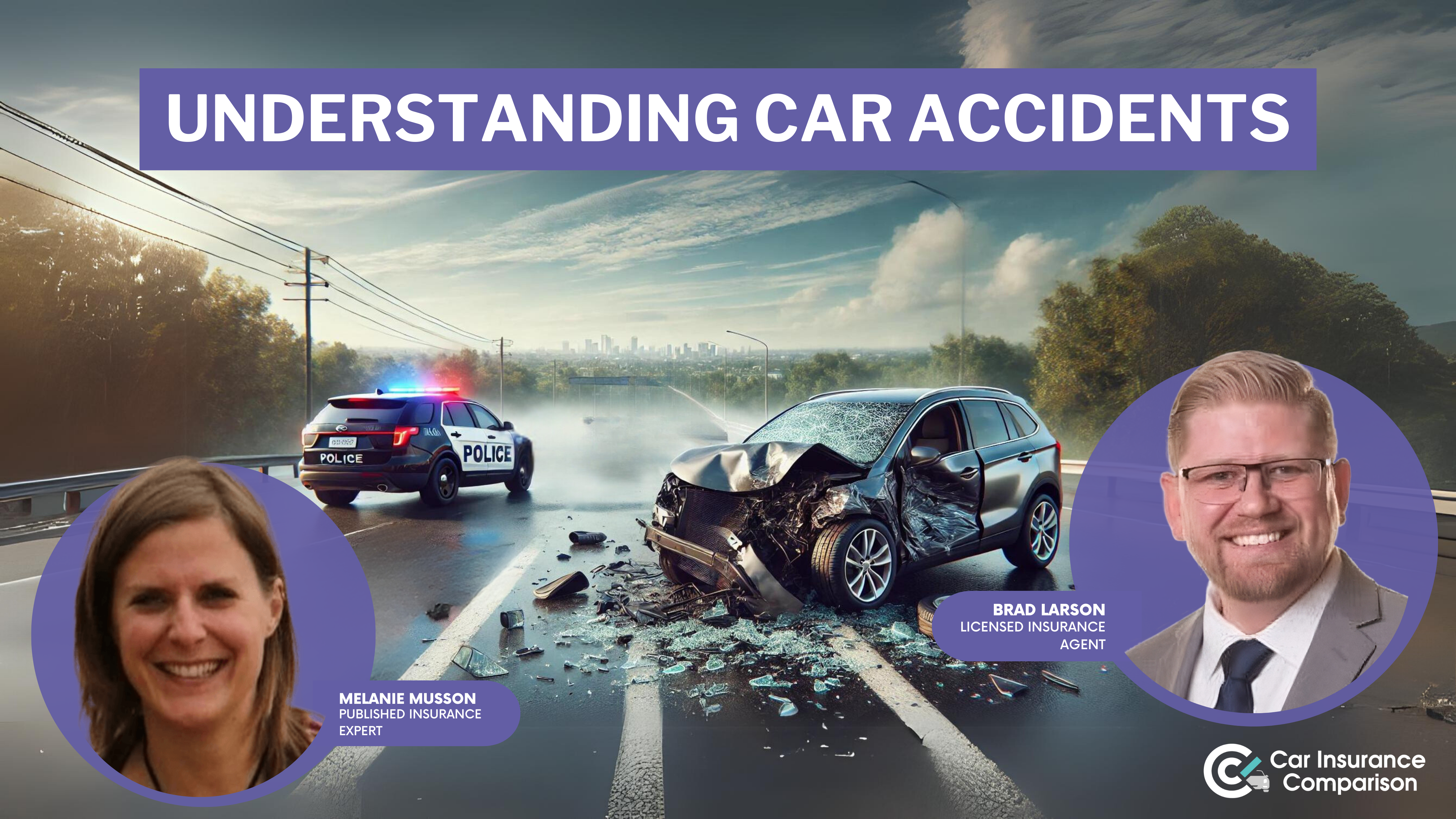
Frequently Asked Questions
What are the three most common things to cause a car accident?
Distracted driving, speeding and reckless driving, and impaired driving are the top three causes of auto accidents in the U.S.
What should I do immediately after a car accident?
After a car accident, it’s important to prioritize safety and take certain steps. Here’s what you should do:
- Ensure your safety and move to a safe location if possible.
- Check for injuries and call for medical assistance if needed.
- Contact the police and report the accident.
- Exchange information with the other driver(s) involved, including names, contact details, and insurance information.
- Document the accident scene by taking photos or videos.
- Notify your insurance company about the accident.
What information should I collect from the other driver(s) involved in the accident?
When involved in a car accident, gather the following information from the other driver(s):
- Full name and contact information.
- Driver’s license number and license plate number.
- Insurance company and policy number.
- Vehicle make, model, and color.
- The location of the accident and the time it occurred.
Is it necessary to involve the police after a car accident?
In many cases, involving the police is crucial after a car accident. Here are some reasons why:
- Police can create an official accident report, which can be important for insurance claims.
- They can help determine who was at fault based on their investigation.
- If the accident involves significant damage, injuries, or a dispute with the other driver(s), involving the police can provide an unbiased record of the incident.
When should I report a car accident to my insurance company?
It’s important to report a car accident to your insurance company as soon as possible. Contact them even if you are not at fault. Most insurance policies have specific time frames for reporting accidents, and delaying the notification may result in claim denial. Timely reporting ensures the smooth processing of your claim.
How does fault affect a car accident insurance claim?
Fault determination plays a crucial role in insurance claims after a car accident. If you are found at fault, your insurance company may be responsible for covering the damages to the other party’s vehicle and any injuries sustained. If the other driver is at fault, their insurance should cover your damages. However, fault determination can vary based on the specific circumstances and local laws.
How do you know who is wrong in a car accident?
Insurance adjusters will determine fault by looking at the evidence provided by you, other drivers, and the police, if they’re involved. This is why it’s crucial to take photos and gather testimony from as many witnesses as possible.
What happens if you lightly hit a car?
If there are no injuries or property damage, there is no reason to file an insurance claim. However, you will face criminal charges if you damage or injure someone in a fender bender and leave the scene.
Get a FREE Quote in Minutes
Insurance rates change constantly — we help you stay ahead by making it easy to compare top options and save.



